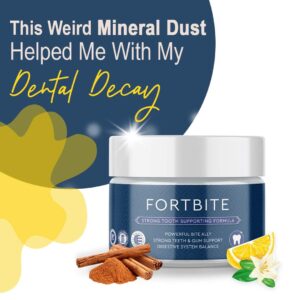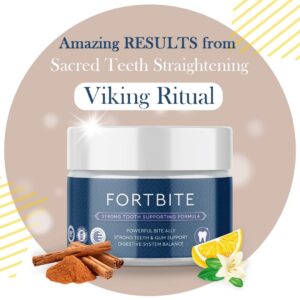The health of our gums and teeth provides a reliable indication of how the rest of our body is functioning. Even while regularly flossing and practicing good dental hygiene are great ways to keep teeth healthy, they are only the beginning. True dental health is built on a diet and nourishment that is adequate.
We’ve put up a list of 15 strategies for strengthening teeth to stop additional decay and cavities.
Skip the Snacks
Snacks that are high in carbohydrates provide the bacteria in our mouths with a consistent supply of food throughout the day. Well-fed bacteria will produce more acid, which harms tooth enamel. Giving our digestive systems a break and a chance to heal is also advantageous.
If you must nibble, make sure it is without carbohydrates, and rinse your mouth out with water afterward. As a result, the sugar should be diluted and the saliva’s acids should be buffered.
Consume Foods High in Minerals

Teeth can absorb or lose beneficial minerals because they are porous. It is essential to make sure they are gaining more minerals than they are losing. This procedure is known as remineralization.
Brushing and flossing can eliminate plaque, but these dental care techniques have little effect on remineralization. If you want to keep your teeth strong, you need to eat a diet rich in minerals.
minerals-rich foods (where possible, choose organic sources)
- Ideally made at home, organic bone broth
- Eggs
- poultry and meat from pasture
- dark leafy greens such as kale, broccoli, and spinach
- Mushrooms
- Cheese, especially soft cheeses
- Himalayan salt
Reduce your intake of processed sugar.
Sugar is the main food source for the bacteria that attack our teeth with harmful acids. It also undoubtedly contributes to a lot of diseases like diabetes, heart disease, and cancer.
The amount of food that bacteria can ingest will be significantly reduced if you cut out refined sugar from your diet. As a result, your teeth will be protected from the corrosive acid that bacteria produce.
Avoid including grains in your diet.
In conclusion, phytic acid, a substance present in grains, nuts, and seeds, prevents the body from absorbing the beneficial minerals zinc, iron, and calcium. It would be safer to eat grains after they have gone through fermentation if you absolutely must.
Clean your tongue.
Maintaining your tongue’s cleanliness by carefully brushing it as part of your oral hygiene practice is a wise way to reduce bacteria. Additionally, you may notice that your breath is fresher and you feel cleaner overall.
Foods that are high in fat-soluble vitamins should be consumed.
Foods high in vitamins A, D, E, and K2 are known to improve oral health. Vitamin D facilitates calcium and phosphorus absorption. K2 on the other hand ensures that calcium reaches our bones and teeth.
It is best to stay away from supplements that include a lot of fat-soluble vitamins because they can be detrimental. Please review the dosage instructions.
Boost digestion-based absorption
Poor gut health may make it harder to digest minerals and nutrients. Despite taking in the right meals, your teeth cannot remineralize if they are not effectively absorbed.
Processed foods, alcohol, parasites, some medicines, stress, and amalgam fillings can all have a bad impact on absorption.
Eat some healthy fats with every meal to improve your body’s absorption of the vitamins A, D, E, and K. Additionally, eat foods high in probiotics like sauerkraut, kimchi, yogurt, pickles, or kombucha, or supplement with probiotics.
Keep yourself hydrated

Drinking water helps to remove food particles and bacteria from the teeth and gums. It also helps neutralize the harmful acid that oral bacteria create.
If you have a dry mouth, your teeth may become susceptible to dental decay. Drinking water promotes salivation, which helps to strengthen teeth by cleaning them with beneficial minerals.
Use fluoride-free toothpaste.
Fluorosis is one of the harmful side effects of the hazardous chemical fluoride. More details on the effects can be found in our article on the 7 ingredients in toothpaste you should avoid.
The substances in whitening toothpaste should also be avoided because they could damage your teeth. If you want a whiter smile, ask our staff about our tooth-friendly whitening services.
Gum without sugar, chew it.
Sugar-free gum promotes salivation, which has nutrients that help teeth grow. If you have a dry mouth, chewing gum is a terrific way to promote saliva and support healthy teeth.
Additionally, chewing gum is a great substitute for brushing your teeth after meals or snacks if it’s not possible. This is because chewing gum will increase saliva production, dilute acids, and help remove food particles and bacteria from the teeth and gums.
Deal with stomach problems
In the mouth, acid from severe heartburn and reflux can harm tooth enamel. Visit your doctor to get medical attention for any digestive problems.
Any jaw clenching or grinding should be addressed.
Many times, the act of clenching or grinding one’s teeth occurs unconsciously. Both when you are awake and while you are asleep, this process wears away or breaks the tooth’s enamel.
If you have a recurrent jaw ache, facial pain, or worn-down teeth, see a dentist.
Proper brushing techniques
Brushing your teeth twice a day for two minutes and flossing once a day can strengthen your teeth. Brushing frequently helps to remove plaque buildup and bacteria from teeth.
Visit the dentist often
In order to keep healthy teeth and gums, it is advantageous to visit the dentist every six months. Your dentist is skilled at identifying issues and diseases before they worsen.
The dentist can also remove things like tartar from teeth that brushing alone cannot.
